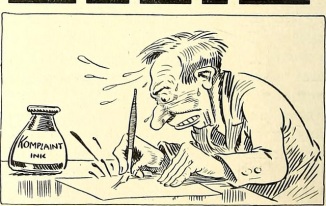
Franz Oppenheimer (1864-1943)
Libertarians portray the “State” as an alien entity that forces itself onto free individuals. It isn’t just that they believe the state is granted a monopoly on coercion, they often argue that the state is nothing but coercion and violence. It produces nothing, it uses violence to seize from productive individuals all that it has. We do not create the state; the state is them and they take what they want from us without regard to our wants or needs. In trying to trace the origins of this “othering” of the state I found myself reading a lot of nineteeth-century German social science, in particular the work of Franz Oppenheimer (1864-1943).
Franz Oppenheimer was a German/Jewish sociologist who published a short book in 1908 entitled Der Staat (translated into English as The State in 1922). Oppenheimer was perhaps the strongest critic of racial theories of statehood in turn-of-the-century German sociology (Stoetzler, 2014, pp. 121-2). In his own account of the origin of the state Oppenheimer argued that the origin of the state was one of war and conflict. He began his argument by claiming that there are only two ways of producing wealth:
There are two fundamentally opposed means whereby man, requiring sustenance, is impelled to obtain the necessary means for satisfying his desires. These are work and robbery, one’s own labor and the forcible appropriation of the labor of others. Robbery! Forcible appropriation! …
Both because of this, and also on account of the need of having, in the further development of this study, terse, clear, sharply opposing terms for these very important contrasts, I propose in the following discussion to call one’s own labor and the equivalent exchange of one’s own labor for the labor of others, the “economic means” for the satisfaction of needs, while the unrequited appropriation of the labor of others will be called the “political means.”
Politics, which is the essence of the state, is nothing but theft according to this view. And the state, as a political institution, cannot itself provide resources or be a source of wealth. The state can only acquire resources produced by the labor others by means of coercion. This is Libertarianism 101.
Continue reading →



